
Sidi Mahrez: The Enchanting Heart of Djerba
Sidi Mahrez, located in the captivating island of Djerba, Tunisia, is a neighbourhood rich in culture and history. Named after the revered Saint Sidi Mahrez, this area is a harmonious blend of spiritual significance and vibrant local life. The neighbourhood is home to the iconic Sidi Mahrez Mosque, a stunning example of Islamic architecture with its dazzling white dome and intricate tile work. This sacred site not only attracts pilgrims but also fascinates tourists with its serene beauty and historical importance. Walking through the streets of Sidi Mahrez, you will encounter a unique mix of traditional and modern influences. The local markets, or souks, are bustling with vendors selling everything from handmade crafts and spices to fresh produce and textiles. These markets provide a sensory overload with their vivid colors, enticing aromas, and the lively banter of merchants. It's a perfect place to immerse yourself in the local culture and perhaps pick up a few souvenirs. Aside from its cultural and historical allure, Sidi Mahrez offers a taste of authentic Djerban cuisine. Numerous cafes and restaurants dot the neighbourhood, offering delicious local dishes such as couscous, brik, and fresh seafood. Dining here is an experience in itself, as you can enjoy your meal while soaking in the picturesque views of the neighbourhood. Whether you're exploring its historical sites, shopping in its vibrant markets, or indulging in its culinary delights, Sidi Mahrez promises an unforgettable experience.
Local tips in Sidi Mahrez
- Visit the Sidi Mahrez Mosque early in the morning to avoid the crowds and experience a peaceful atmosphere.
- Wear comfortable walking shoes as the neighbourhood's cobblestone streets can be tricky to navigate.
- Carry some local currency (Tunisian Dinar) as many market vendors may not accept credit cards.
- Try the local specialty, brik, a delicious pastry filled with egg and tuna, at one of the neighbourhood cafes.
- Respect local customs by dressing modestly, especially when visiting religious sites.
Sidi Mahrez: The Enchanting Heart of Djerba
Sidi Mahrez, located in the captivating island of Djerba, Tunisia, is a neighbourhood rich in culture and history. Named after the revered Saint Sidi Mahrez, this area is a harmonious blend of spiritual significance and vibrant local life. The neighbourhood is home to the iconic Sidi Mahrez Mosque, a stunning example of Islamic architecture with its dazzling white dome and intricate tile work. This sacred site not only attracts pilgrims but also fascinates tourists with its serene beauty and historical importance. Walking through the streets of Sidi Mahrez, you will encounter a unique mix of traditional and modern influences. The local markets, or souks, are bustling with vendors selling everything from handmade crafts and spices to fresh produce and textiles. These markets provide a sensory overload with their vivid colors, enticing aromas, and the lively banter of merchants. It's a perfect place to immerse yourself in the local culture and perhaps pick up a few souvenirs. Aside from its cultural and historical allure, Sidi Mahrez offers a taste of authentic Djerban cuisine. Numerous cafes and restaurants dot the neighbourhood, offering delicious local dishes such as couscous, brik, and fresh seafood. Dining here is an experience in itself, as you can enjoy your meal while soaking in the picturesque views of the neighbourhood. Whether you're exploring its historical sites, shopping in its vibrant markets, or indulging in its culinary delights, Sidi Mahrez promises an unforgettable experience.
Iconic landmarks you can’t miss
Djerba Explore Park
Experience the magic of Tunisia at Djerba Explore Park, a family-friendly theme park filled with thrilling rides, cultural exhibits, and unforgettable animal encounters.
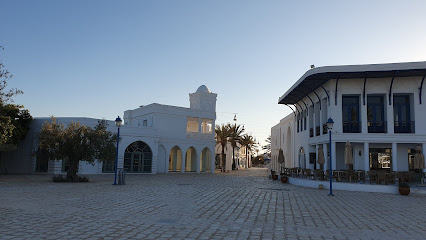
Djerbahood
Explore Djerbahood, a stunning open-air museum in Hara Sghira Er Riadh, where art and culture merge in a vibrant display of creativity.
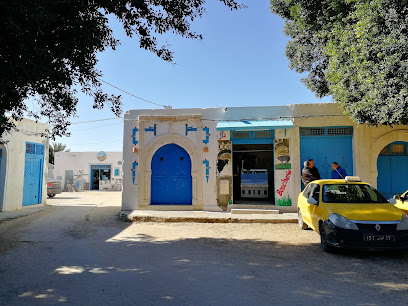
Gazi Mustapha Tower
Explore the historical Gazi Mustapha Tower in Houmt Souk, Tunisia, and enjoy stunning sea views and rich cultural heritage.
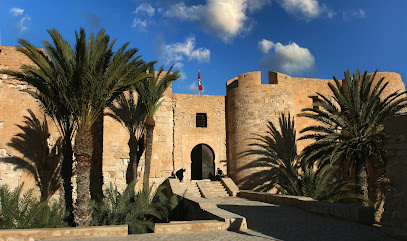
Sidi Jemour Mosque
Discover the mesmerizing beauty and spiritual heritage of Sidi Jemour Mosque in Groua, a must-visit destination for every traveler in Tunisia.
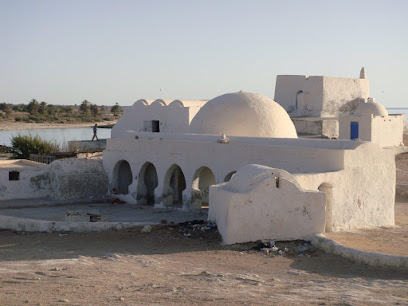
Greater Flamingo Island
Experience the beauty of nature at Greater Flamingo Island, a tranquil oasis in Houmt Souk, perfect for birdwatching and beach relaxation.
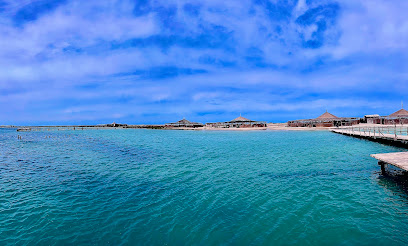
Plage de Sidi Mahrez
Discover the tranquil beauty of Plage de Sidi Mahrez, a stunning beach in Tunisia offering sun, sand, and delightful local cuisine.
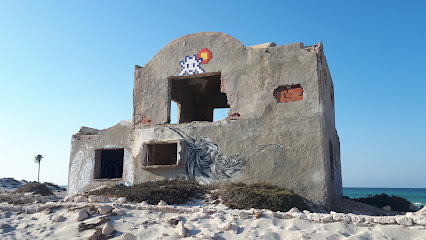
Borj El Kastil Fortress
Explore the rich history and stunning views from Borj El Kastil Fortress in Ghardaïa, a remarkable testament to Tunisia's architectural heritage.
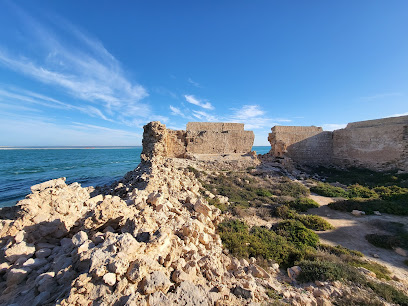
Touristique Zone
Experience the charm and beauty of Touristique Zone in Aghir, Tunisia, a landmark destination rich in culture, history, and breathtaking landscapes.
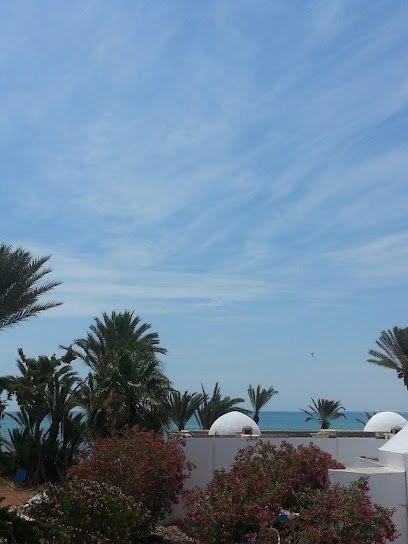
Peche sidi Jmour Djerba
Explore the breathtaking coastal beauty and vibrant culture at Peche Sidi Jmour Djerba, a hidden gem on Tunisia's picturesque island.
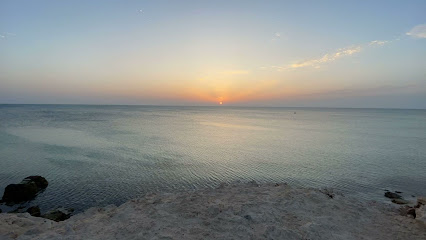
Diar Meryem Sidi Mehrez Djerba
Experience the tranquil charm of Djerba at Diar Meryem, a serene villa retreat in Sidi Mehrez, blending comfort with local Tunisian culture.
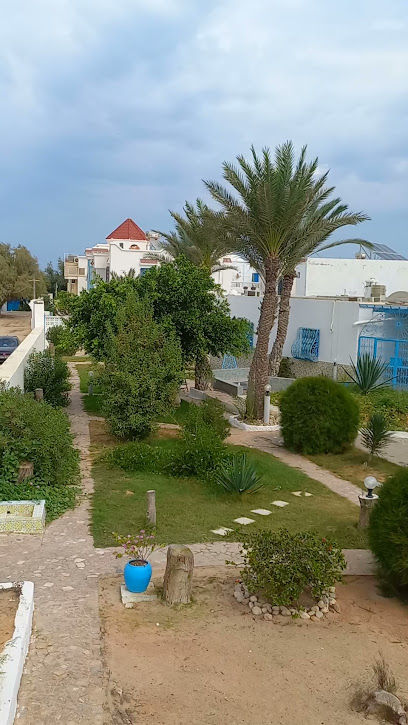
Unmissable attractions to see
Djerba Explore Park
Experience adventure and culture at Djerba Explore Park, a premier theme park in Tunisia filled with thrilling attractions and local traditions.
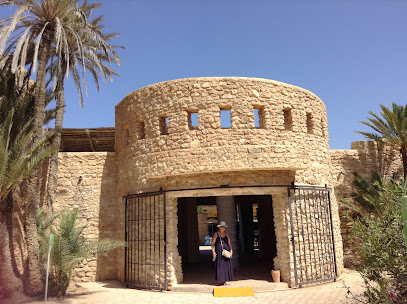
Djerba Crocodile Farm
Discover the wonders of Djerba Crocodile Farm, where thrilling encounters with crocodiles and other wildlife await in a family-friendly environment.
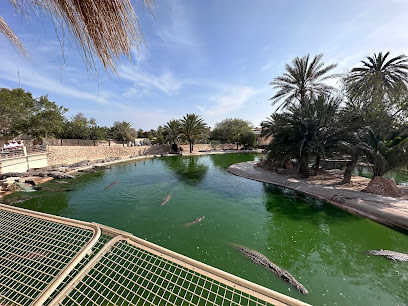
Gazi Mustapha Tower
Discover the majestic Gazi Mustapha Tower in Houmt Souk, a historical landmark that captures the essence of Tunisia's rich heritage and stunning vistas.
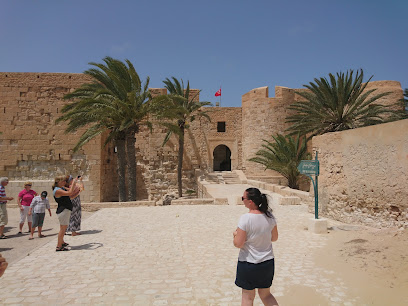
Lalla Hadria Museum
Explore the enchanting Lalla Hadria Museum in Djerba Midun, where the island's vibrant heritage and artistry come to life through captivating exhibits.
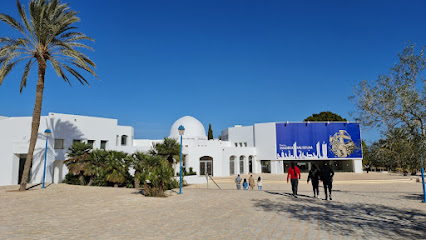
Plage de Sidi Mahrez
Experience the beauty of Plage de Sidi Mahrez, a serene beach paradise in Tunisia, perfect for relaxation and seaside adventures.
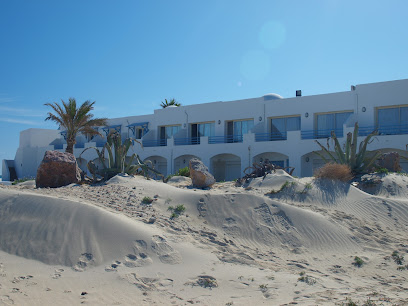
Houmt souk djerba
Explore the historical and cultural essence of Houmt Souk, Djerba - a vibrant town rich in tradition and stunning Mediterranean views.
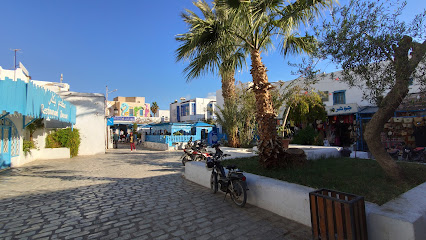
Touristique Zone
Explore the vibrant culture, local cuisine, and stunning coastal views of Touristique Zone in Aghir, Tunisia.
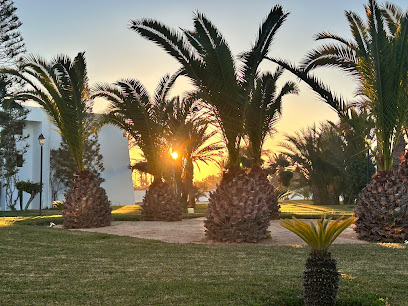
Plage sidi salem
Experience the tranquil allure of Plage Sidi Salem, a stunning beach on Djerba Island, where golden sands meet azure waters for an unforgettable getaway.
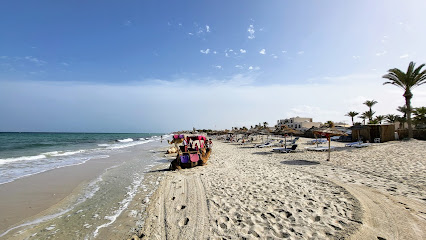
Essential places to dine
Uncle Ali's FISH restaurant
Discover authentic Mediterranean seafood at Uncle Ali's Fish Restaurant in Aghir, where fresh flavors meet stunning seaside views.
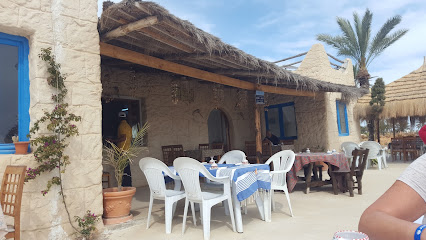
Restaurant chez Moktar-مطعم المختار
Discover the flavors of Tunisia at Restaurant chez Moktar in Djerba – where every meal is a celebration of culture and taste.
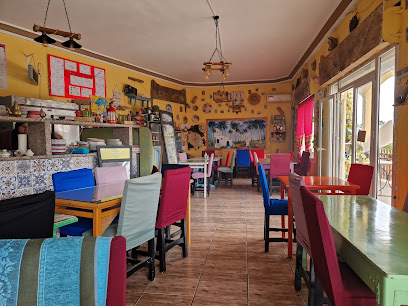
Sunset beach djerba
Experience exquisite Tunisian cuisine at Sunset Beach Djerba while enjoying mesmerizing Mediterranean views and unforgettable sunsets.
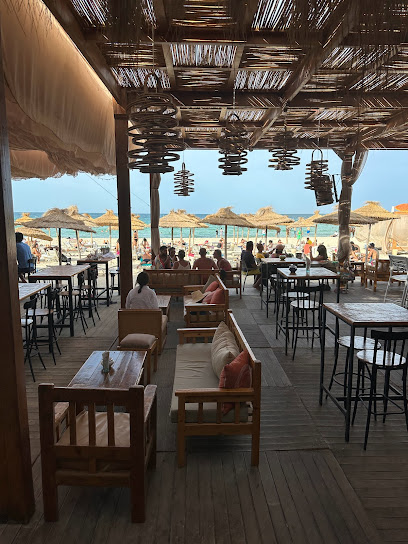
Café restaurant Santorini
Discover exquisite Mediterranean cuisine at Café Restaurant Santorini on Djerba's stunning Sidi Mahrez beach—where flavors meet breathtaking views.
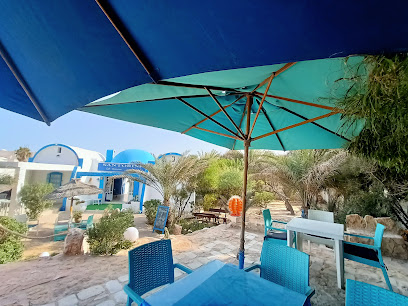
EmiFri’s
Discover EmiFri's on Djerba's Mezraya plage - where authentic Tunisian flavors meet stunning sea views.
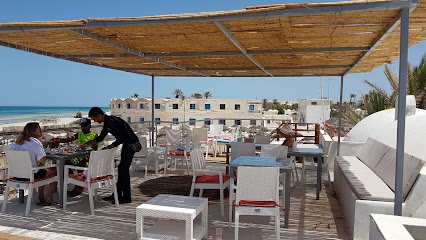
Restaurant La Mer a Djerba
Experience authentic Tunisian cuisine at Restaurant La Mer a Djerba, offering fresh seafood and barbecue delights in a charming setting.
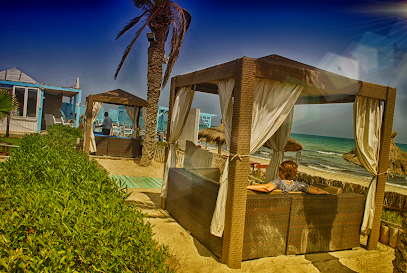
Restaurant El Marsa
Experience authentic Tunisian cuisine at Restaurant El Marsa in Groua - a must-visit culinary destination for tourists exploring Djerba.
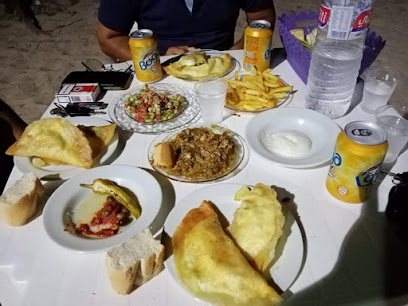
La BARAQUE BEACH
Discover La Baraque Beach in Djerba Midun – a serene retreat renowned for its fresh seafood and stunning Mediterranean views.
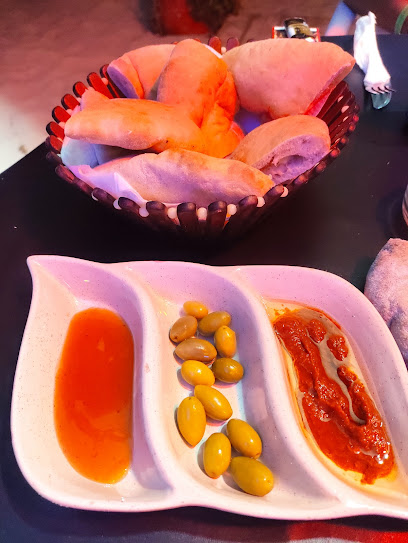
Restaurant Sidi Baba
Experience the essence of Tunisian cuisine at Restaurant Sidi Baba in Mezraia, where every dish tells a story.
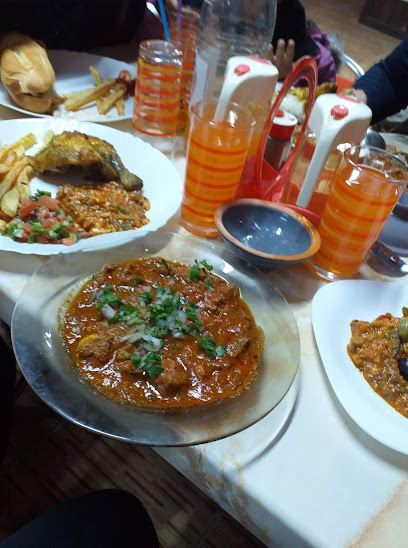
Restaurant Sidi Bou Saïd
Experience authentic Tunisian cuisine at Restaurant Sidi Bou Saïd in Djerba Midun – where every dish tells a story.
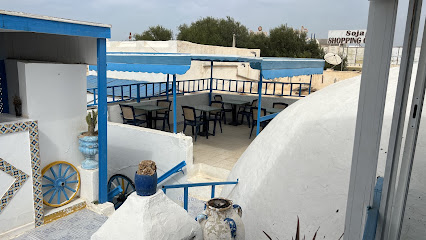
Markets, malls and hidden boutiques
Aziz Shopping Center
Discover a unique blend of local culture and modern retail at Aziz Shopping Center in Djerba Midun, your perfect shopping destination.
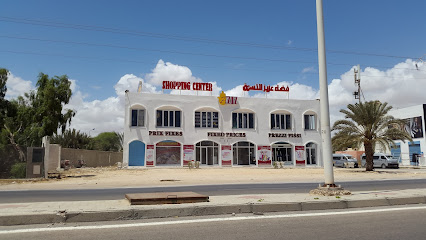
Saïd Shopping Center
Discover a world of shopping, dining, and culture at Saïd Shopping Center in Djerba Midun, where every visit is a unique experience.
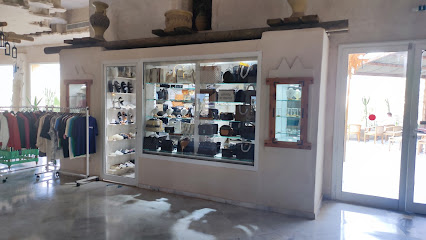
El Houch concept store
Explore El Houch Concept Store in Houmt Souk for unique home goods and authentic Tunisian craftsmanship.
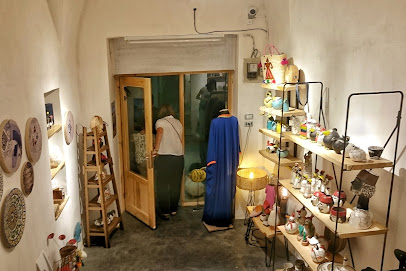
chichkhan store
Discover the rich culture of Djerba at Chichkhan Store, offering exquisite clothing and unique Tunisian handicrafts in a welcoming atmosphere.
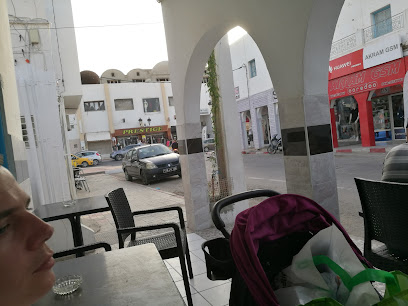
Ste MINI SOUK
Explore Ste MINI SOUK, a vibrant shopping mall in Houmt Souk, blending local culture with international brands for an unforgettable shopping experience.
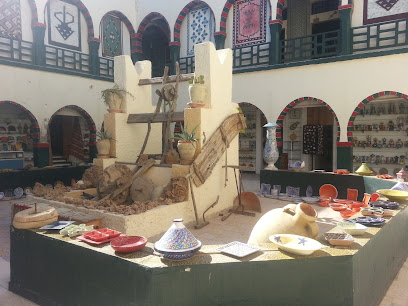
Boutique Marquise
Explore Boutique Marquise in Houmt Souk for unique clothing and accessories that celebrate Tunisian fashion and style.
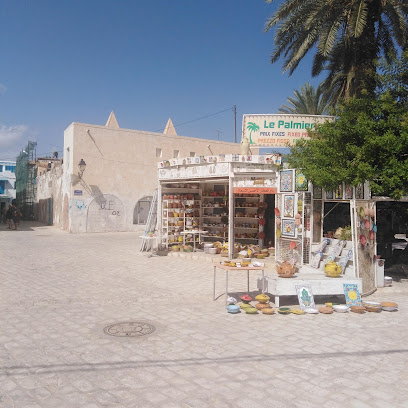
Souvenirs de l'île chez Walid RAIS
Discover authentic Tunisian souvenirs at Souvenirs de l'île chez Walid RAIS, a treasure trove of local crafts in Houmt Souk.
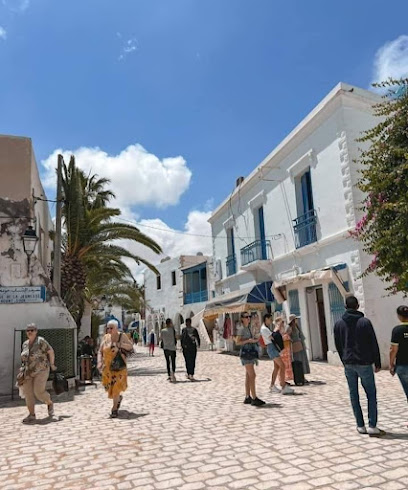
Souvenir Djerba
Discover the essence of Djerba at Souvenir Djerba, where unique handcrafted treasures await to share the beauty of Tunisian culture.
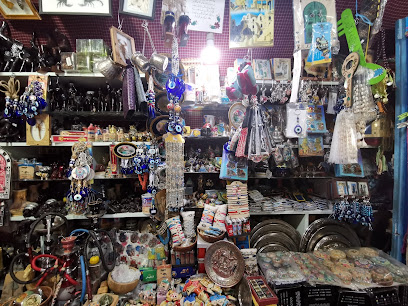
magasin denguir d'artisanat et divers
Explore the vibrant artisan craft store in Djerba, showcasing unique handcrafted goods and local cultural treasures.
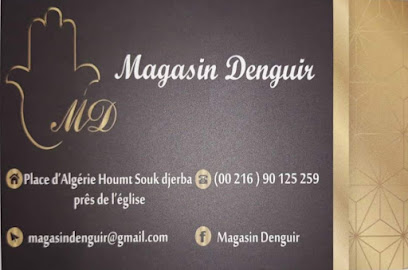
Mini Prix Sidi Zaied
Explore the vibrant Mini Prix Sidi Zaied for a unique shopping and dining experience in the heart of Houmt Souk, Tunisia.
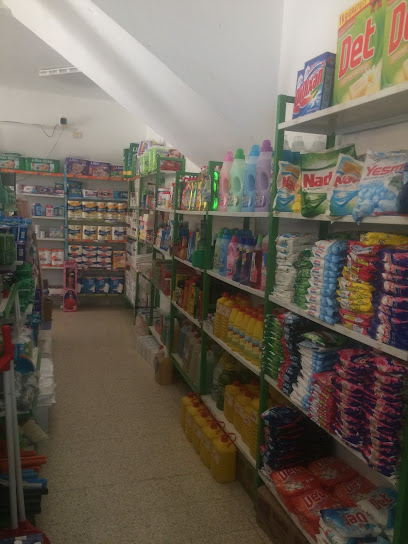
Essential bars & hidden hideouts
Sunset beach djerba
Discover the serene beauty and rich flavors of Sunset Beach Djerba, a perfect coastal retreat for every traveler.
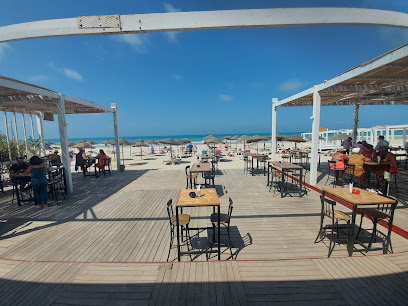
Café restaurant Santorini
Discover the flavors of Tunisia at Café Restaurant Santorini, where exquisite cuisine meets breathtaking beach views in Djerba.
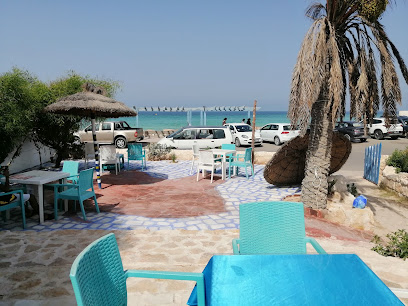
EmiFri’s
Discover the authentic tastes of Tunisian cuisine at EmiFri’s, a beachfront restaurant in Djerba, perfect for food lovers and beachgoers alike.
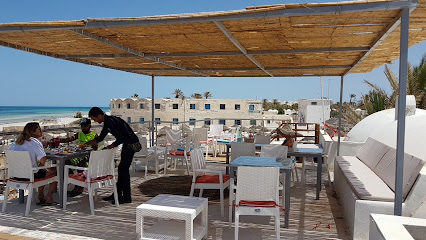
Plage Sunset
Discover the enchanting Plage Sunset in Mezraia, where breathtaking sunsets and golden sands create the perfect beach escape for travelers.
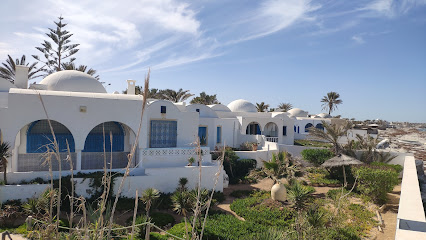
Plaza Sea Lounge Djerba
Experience the vibrant nightlife and stunning Mediterranean views at Plaza Sea Lounge Djerba, your ultimate coastal bar destination.
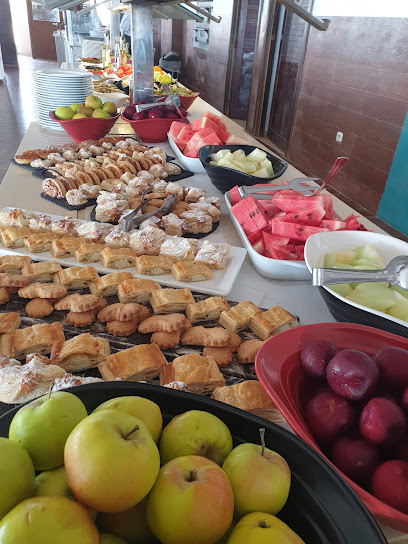
Restaurant La Mer a Djerba
Experience the best of Tunisian cuisine at Restaurant La Mer in Djerba, featuring fresh seafood, barbecue delights, and a relaxing poolside atmosphere.
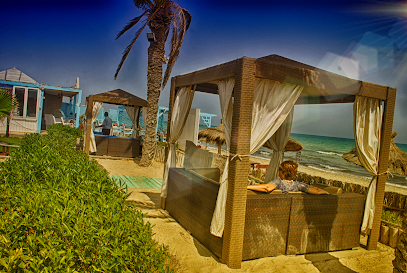
Coco Loco
Experience the lively atmosphere of Coco Loco, a vibrant bar in Djerba offering refreshing drinks and a perfect spot to unwind.
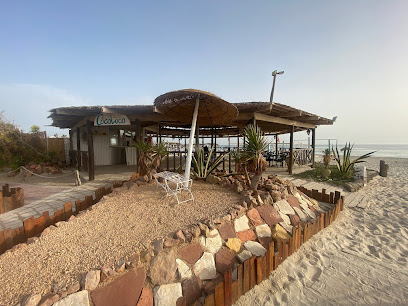
La BARAQUE BEACH
Discover the flavors of the sea at La BARAQUE BEACH, a delightful seafood restaurant in Djerba Midun with stunning coastal views.
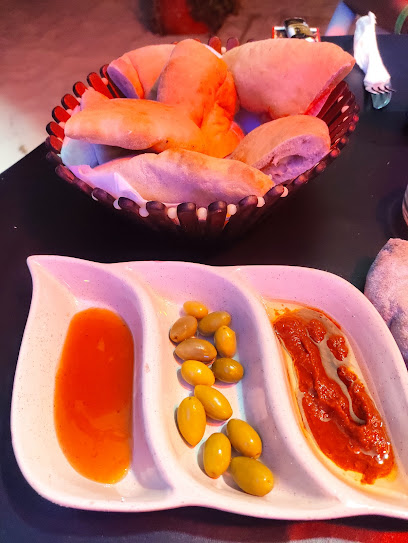
Restaurant Sidi Baba
Experience authentic Tunisian cuisine at Restaurant Sidi Baba in Mezraia, where every dish tells a story of rich flavors and local traditions.
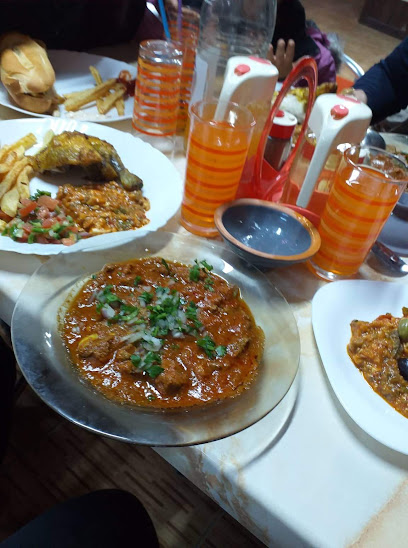
Le Squat Sun Club Djerba
Discover the vibrant atmosphere of Le Squat Sun Club Djerba, where refreshing drinks meet the charm of tropical relaxation in Tunisia.
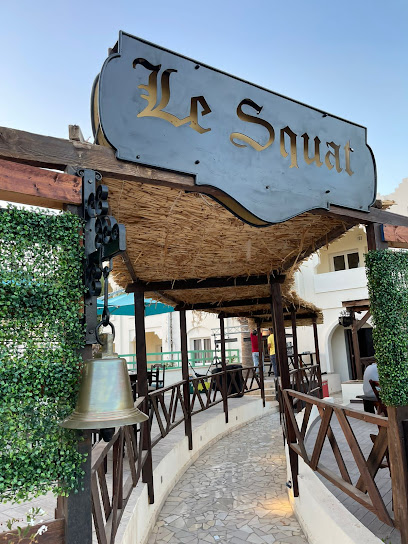
Local Phrases
-
- Helloمرحبا
[Marhaba] - Goodbyeوداعا
[Wada'an] - Yesنعم
[Naam] - Noلا
[La] - Please/You're welcomeمن فضلك
[Min fadlik] - Thank youشكرا
[Shukran] - Excuse me/Sorryعذرا
[A'ithrana] - How are you?كيف حالك؟
[Kif halak?] - Fine. And you?بخير. وأنت؟
[Bikhayr. Wa ant?] - Do you speak English?هل تتكلم الانجليزية؟
[Hal tatakallam al-inglizia?] - I don't understandأنا لا أفهم
[Ana la afham]
- Helloمرحبا
-
- I'd like to see the menu, pleaseأريد أن أرى القائمة، من فضلك
[Uriidu an ara al-qaimah, min fadlik] - I don't eat meatأنا لا آكل اللحوم
[Ana la aakulu al-lahm] - Cheers!في صحتك!
[Fi sahtak!] - I would like to pay, pleaseأريد أن أدفع، من فضلك
[Uriidu an adfa', min fadlik]
- I'd like to see the menu, pleaseأريد أن أرى القائمة، من فضلك
-
- Help!النجدة!
[Al-najdah!] - Go away!ارحل!
[Irhal!] - Call the Police!اتصل بالشرطة!
[Itasal bialshurta!] - Call a doctor!اتصل بطبيب!
[Itasal bitalib!] - I'm lostلقد ضللت الطريق
[Laqad dalalt al-tariq] - I'm illأنا مريض
[Ana mareed]
- Help!النجدة!
-
- I'd like to buy...أريد أن أشتري...
[Uriidu an ashtari...] - I'm just lookingأنا فقط أتطلع
[Ana faqat atatalla'] - How much is it?كم هو ثمنه؟
[Kam huwa thamanuhu?] - That's too expensiveهذا غالي جدا
[Hatha ghali jiddan] - Can you lower the price?هل يمكنك تخفيض السعر؟
[Hal yumkinuka takhfid al-si'ar?]
- I'd like to buy...أريد أن أشتري...
-
- What time is it?كم الساعة؟
[Kam al-saa'a?] - It's one o'clockالساعة الواحدة
[Al-saa'ah al-wahidah] - Half past (10)العاشرة والنصف
[Al-'ashirah wal-nisf] - Morningالصباح
[Al-subah] - Afternoonالظهر
[Al-dhuhr] - Eveningالمساء
[Al-masaa'] - Yesterdayأمس
[Ams] - Todayاليوم
[Al-yawm] - Tomorrowغدا
[Ghadan] - 1واحد
[Wahid] - 2اثنان
[Ithnaan] - 3ثلاثة
[Thalatha] - 4أربعة
[Arba'a] - 5خمسة
[Khamsa] - 6ستة
[Sitta] - 7سبعة
[Sab'a] - 8ثمانية
[Thamania] - 9تسعة
[Tisa'a] - 10عشرة
[Ashara]
- What time is it?كم الساعة؟
-
- Where's a/the...?أين الـ...
[Ayna al-...] - What's the address?ما هو العنوان؟
[Ma huwa al-anaan?] - Can you show me (on the map)?هل يمكنك أن تريني (على الخريطة)؟
[Hal yumkinuka an tureeni (ala al-kharitah)?] - When's the next (bus)?متى يأتي الحافلة التالية؟
[Mata yaati al-hafilah al-taliyah?] - A ticket (to ....)تذكرة (إلى ....)
[Tadhkirah (ila ....)]
- Where's a/the...?أين الـ...
History of Sidi Mahrez
-
Sidi Mahrez, like much of Djerba, is steeped in Berber culture, which predates the arrival of Arab settlers in the 7th century. The Berbers, known for their distinct language and customs, have influenced the architecture, cuisine, and social structures of the region. The traditional houses in Sidi Mahrez, with their whitewashed walls and colorful doors, reflect this rich heritage.
-
In the early 7th century, Arab forces arrived in Djerba, leading to a significant transformation of the island’s cultural landscape. Sidi Mahrez became part of the larger Islamic influence on the island, which introduced new agricultural practices and religious structures. The mosque of Sidi Mahrez, dating back to this period, serves as a testament to the enduring Islamic presence in the area.
-
During the Ottoman period, which began in the 16th century, Sidi Mahrez experienced a flourishing of trade and culture. The Ottomans established Djerba as a significant trade hub in the Mediterranean, enhancing the local economy and fostering a cosmopolitan atmosphere. This influence is evident in the architectural styles and the diverse population that includes Arabs, Berbers, and Jews.
-
Sidi Mahrez is home to a historically significant Jewish community, which thrived from the 15th century onwards. The coexistence of Jewish and Muslim populations in Djerba led to a vibrant cultural exchange. The El Ghriba Synagogue, located nearby, is one of the oldest synagogues in the world and attracts pilgrims annually, highlighting the area's diverse religious heritage.
-
In recent decades, Sidi Mahrez has seen an influx of tourism, prompting efforts to preserve its unique cultural and historical identity. Initiatives to restore traditional buildings and promote local crafts are underway, allowing visitors to experience the authentic heritage of this charming neighborhood. The balance of modernization with conservation reflects the ongoing evolution of Sidi Mahrez within the broader context of Djerba.
Sidi Mahrez Essentials
-
Sidi Mahrez is easily accessible from other neighborhoods in Djerba. If you are coming from Houmt Souk, the island's capital, local taxis and buses are available, taking about 20-30 minutes. From Midoun, it’s a short 10-minute taxi ride or a 15-minute bus journey. Renting a car is also an option, providing the flexibility to explore the coastline and nearby attractions at your own pace.
-
Sidi Mahrez is relatively small and can be explored on foot. For longer distances, local taxis are readily available. Bicycles can be rented from various shops in the area, making it a fun way to explore the scenic routes along the beach and through local villages. Public buses connect Sidi Mahrez to other parts of the island, but schedules can be infrequent.
-
Sidi Mahrez is generally a safe neighborhood for tourists. However, it is advisable to remain vigilant, especially in crowded areas. Avoid secluded beaches at night. While there are no specific high-crime areas targeting tourists, petty theft can occur, so keep an eye on your belongings and avoid displaying valuable items.
-
In case of emergency, dial 19 for police, 80 for fire, and 71 for medical emergencies. The nearest hospital is in Houmt Souk, about a 30-minute drive from Sidi Mahrez. Ensure you have travel insurance that covers medical emergencies, and know that local pharmacies can provide basic healthcare needs.
-
Fashion: Do dress modestly, especially when visiting religious sites. Avoid wearing swimwear away from the beach. Religion: Do respect local customs, particularly during prayer times and religious festivals. Public Transport: Do give up your seat to the elderly. Don’t eat or drink on public buses. Greetings: Do greet locals with a friendly 'Salam'. A handshake is common. Eating & Drinking: Do try local dishes and drinks. Don’t refuse food or drink offered to you, as it’s considered rude.
-
To experience Sidi Mahrez like a local, visit the nearby markets for fresh produce and handicrafts. Engage with local fishermen at the docks for a chance to learn about the traditional fishing methods. Enjoy a leisurely meal at a local café, and don't hesitate to try Tunisian pastries and mint tea. Attend local festivals if your visit coincides, as they offer a glimpse into the vibrant culture of Djerba.
Nearby Cities to Sidi Mahrez
-
Things To Do in Sfax
-
Things To Do in Sabratha
-
Things To Do in Monastir
-
Things To Do in Sousse
-
Things To Do in Tripoli
-
Things To Do in Tozeur
-
Things To Do in Hammamet
-
Things To Do in Leptis Magna
-
Things To Do in Tunis
-
Things To Do in Zliten
-
Things To Do in Xlendi
-
Things To Do in Rabat
-
Things To Do in Mgarr
-
Things To Do in Xewkija
-
Things To Do in Gozo









